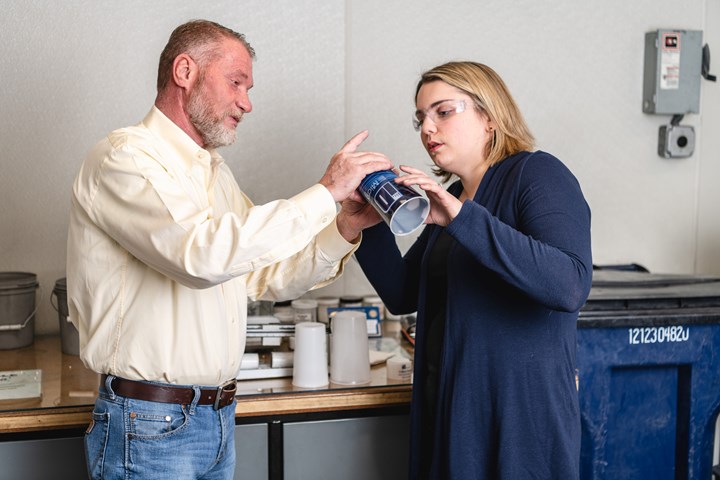High-Temperature Foaming Agents Reduce Weight and Costs for Engineering Resins
iD Additives’s Micro Fine Cell product line increasingly used for PC, PC blends, nylons and more.

A line of high-temperature foaming agents from iD Additives has been getting increasing play for use in volume commodity engineering resins such as PC and nylons with processors challenged by ever increasing resin prices. Included are:
â–ª Micro Fine Cell 71896, designed to activate at 400 F and operate at temperatures up to 600 F+, is a hygroscopic additive that is especially suited for use with such resins as PC, PC/ABS, PC/PBT, and nylons in injection molding and extrusion applications..
â–ª Micro Fine Cell 75553, designed to activate at 380 F, is specifically suited to extrusion blow molding applications.
According to technical manager Ron Bishop, while iD Additives has had these high-temperature agents available for some time, the company is promoting them now because of the resin pricing situation and the many questions they’ve received from customers. “We often get calls asking about our foaming agents for general type resins such as PP, PE and others, but lately we’ve heard from more customers running PC and nylon asking if we have anything that can help them reduce part weight and save resin.”
Describing them as essentially flow enhancers, Bishop added that these foaming agents can help improve the molding process, and that recent advances in machine technology are allowing molders to foam parts that could not be foamed before. He also noted that aesthetic part surfaces can be achieved with the foaming agents, as well as thin-wall parts. “We have molded parts with wall thicknesses of just 0.028 in., and reduced the overall part weight from 7-9%. Modern molding machines have faster speeds and better controls, and have opened up even more possibilities for working with foaming agents.”
Available as endothermic or exothermic foaming agents in pellet form, and also available in powder and liquid forms, Micro Fine Cell foaming agents have been shown to provide uniform distribution of the cells throughout the part, resulting in consistent part quality. Moreover, they have been shown to perform equally well in flexible or rigid polymers. FDA certified formulations are available.
Related Content
-
Prices for PE, PS, PVC, PET Trending Flat; PP to Drop
Despite price increase nominations going into second quarter, it appeared there was potential for generally flat pricing with the exception of a major downward correction for PP.
-
Prices Up for PE, ABS, PC, Nylons 6 and 66; Down for PP, PET and Flat for PS and PVC
Second quarter started with price hikes in PE and the four volume engineering resins, but relatively stable pricing was largely expected by the quarter’s end.
-
Polymer Science for Those Who Work With Plastic — Part 1: The Repeat Unit
What are the basic building blocks of plastics and how do they affect the processing of that material and its potential applications in the real world? Meet the repeat unit.





